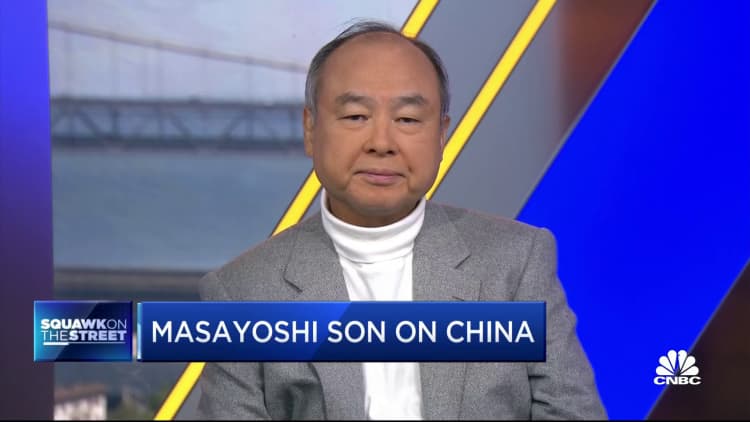
Pedestrians walk past a Pizza Hut restaurant and a KFC restaurant, both operated by Yum China, in Beijing, China, on Sept. 5, 2020.
Bloomberg | Bloomberg | Getty Images
BEIJING — Yum China is spending more on tech, an investment that’s allowed it to open more stores without having to hire more staff, CEO Joey Wat told CNBC in an interview Friday.
Yum China operates KFC and Pizza Hut stores in China, among other brands. Its U.S.-listed shares rose by 5.45% Thursday after the company increased its net new stores target for the year by 300 — and plans to return $3 billion to shareholders over the next three years.
“From 2016 to now we increased our number of stores by about 80%. However, our number of staff almost stayed flat [around] 430,000 people,” Wat said via video conference.
With technology, she said staff can be promoted to manage multiple stores and support the opening of new locations.
Yum China said Thursday it plans to invest $3.5 billion to $5 billion over the next three years to grow its store network, improve its supply chain and boost digital capabilities. This year alone, the company plans to spend about $700 million to $900 million.

Wat said the company began to invest in technology during the Covid-19 pandemic to improve visibility into its supply chain and inventory levels in a period when certain stores might need to close due to lockdown controls.
Companies from Alibaba to Walmart‘s Sam’s Club have been using software to manage warehouses and supermarket inventory in China — to sell services such as one-hour grocery delivery.
Yum China is building more of its own logistics centers where it can integrate more technology into its supply chain and reduce carbon emissions, Wat said, noting the company ultimately aims to own 30% of its logistics centers rather than having to rent them.
AI at work
As a result, store managers don’t have to order inventory anymore — ingredients are automatically pushed to the store with the help of artificial intelligence-based forecasting, Wat said.
That tech reduces labor and operating costs, as well as food waste, she said. Wat added that current logistics center coverage also has the capacity to serve Yum China’s planned store openings in the near term.
The company has 33 logistics centers, and plans to increase that number to at least 45 in the next three to five years.
Yum China is also considering the use of generative AI to help store managers understand and analyze store data better, Wat said, emphasizing it’s still at a “very, very early stage.”
She said the company is still assessing what can be done in-house, and what requires external help.
Generative AI uses large models to create content that can resemble what a human being might produce — but in a far shorter time frame.
Consumer trends
To meet such tech investment and company growth goals, Wat did not specify whether Yum China would hire more staff. “We will hire whoever we need to hire,” she said.
She claimed the company didn’t lay any people off, not even during the three years of the pandemic.
China’s broader economic recovery from Covid lockdowns has slowed in recent months. The latest available data for young people ages 16 to 24 showed a jobless rate of around 20% this summer, while the overall unemployment rate in cities has been far lower near 5.2%.
Overall uncertainty about future income has weighed on consumer spending.
Despite business expansion, Yum China said it expects same-store sales this year to reach 90% of 2019 levels.
Wat noted that Yum China opened more than half of its stores after 2019, and that its stores are roughly split between the country’s larger cities and less developed areas.
She described summer business as a peak time for the company, especially with local tourism, and said transactions remained “solid” in September after the start of the school year.
Yum China also has a local joint venture with Italian coffee brand Lavazza, which now has more than 100 stores in China.
Wat said that in addition to coffee, the company is exploring how to introduce more food products for the brand in China.